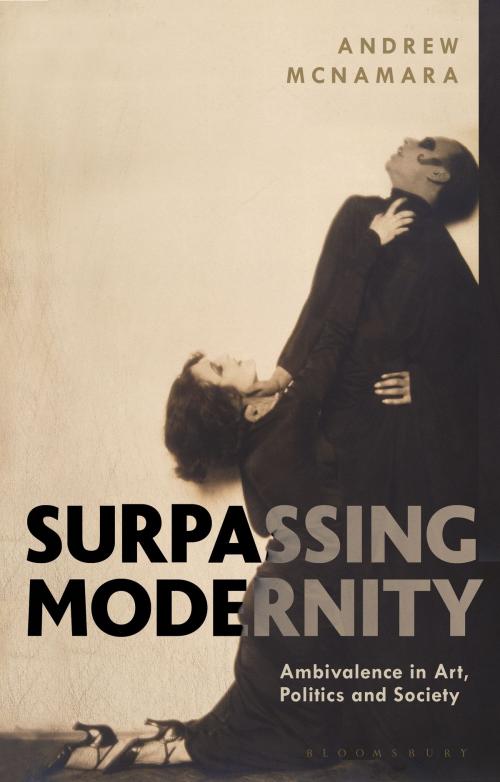Surpassing Modernity
Ambivalence in Art, Politics and Society
Nonfiction, Religion & Spirituality, Philosophy, Aesthetics, Political| Author: | Andrew McNamara | ISBN: | 9781350008359 |
| Publisher: | Bloomsbury Publishing | Publication: | November 29, 2018 |
| Imprint: | Bloomsbury Academic | Language: | English |
| Author: | Andrew McNamara |
| ISBN: | 9781350008359 |
| Publisher: | Bloomsbury Publishing |
| Publication: | November 29, 2018 |
| Imprint: | Bloomsbury Academic |
| Language: | English |
For the past thirty to forty years, cultural analysis has focused on developing terms to explain the surpassing of modernity. Discussion is stranded in an impasse between those who view the term modernity with automatic disdain-as deterministic, Eurocentric or imperialistic-and a booming interest that is renewing the study of modernism. Another dilemma is that the urge to move away from, or beyond, modernity arises because it is viewed as difficult, even unsavoury. Yet, there has always been a view of modernity as somehow difficult to live with, and that has been said by figures we regard today as typical modernists.
McNamara argues in this book that it is time to forget the quest to surpass modernity. Instead, we should re-examine a legacy that continues to inform our artistic conceptions, our political debates, our critical justifications, even if that legacy is baffling and contradictory. We may find it difficult to live with, but without recourse to this legacy, our critical-cultural ambitions would remain seriously diminished.
How do we explain the culture we live in today? And how do we, as citizens, make sense of it? This book suggests these questions have become increasingly difficult to answer.
For the past thirty to forty years, cultural analysis has focused on developing terms to explain the surpassing of modernity. Discussion is stranded in an impasse between those who view the term modernity with automatic disdain-as deterministic, Eurocentric or imperialistic-and a booming interest that is renewing the study of modernism. Another dilemma is that the urge to move away from, or beyond, modernity arises because it is viewed as difficult, even unsavoury. Yet, there has always been a view of modernity as somehow difficult to live with, and that has been said by figures we regard today as typical modernists.
McNamara argues in this book that it is time to forget the quest to surpass modernity. Instead, we should re-examine a legacy that continues to inform our artistic conceptions, our political debates, our critical justifications, even if that legacy is baffling and contradictory. We may find it difficult to live with, but without recourse to this legacy, our critical-cultural ambitions would remain seriously diminished.
How do we explain the culture we live in today? And how do we, as citizens, make sense of it? This book suggests these questions have become increasingly difficult to answer.















